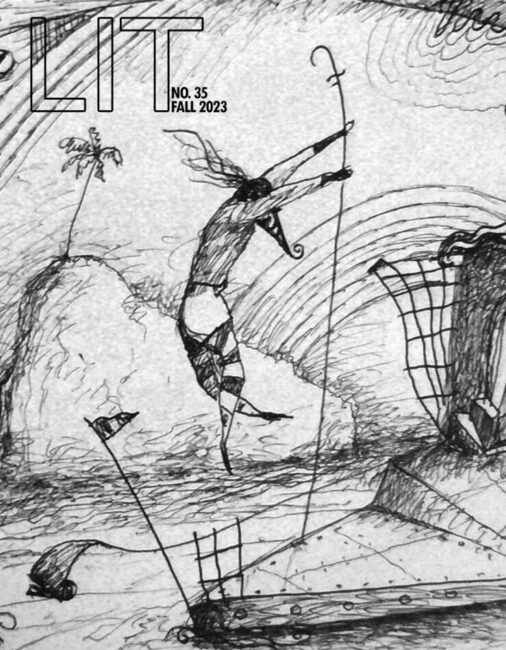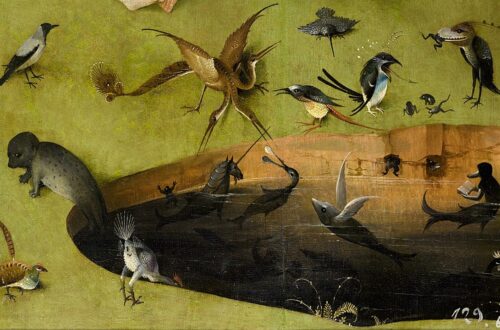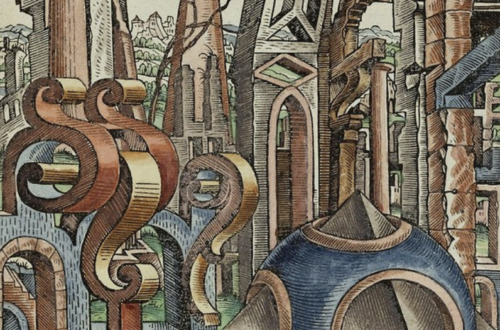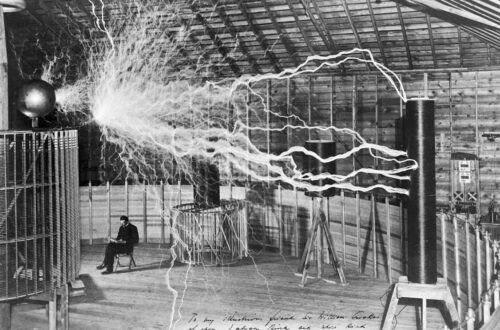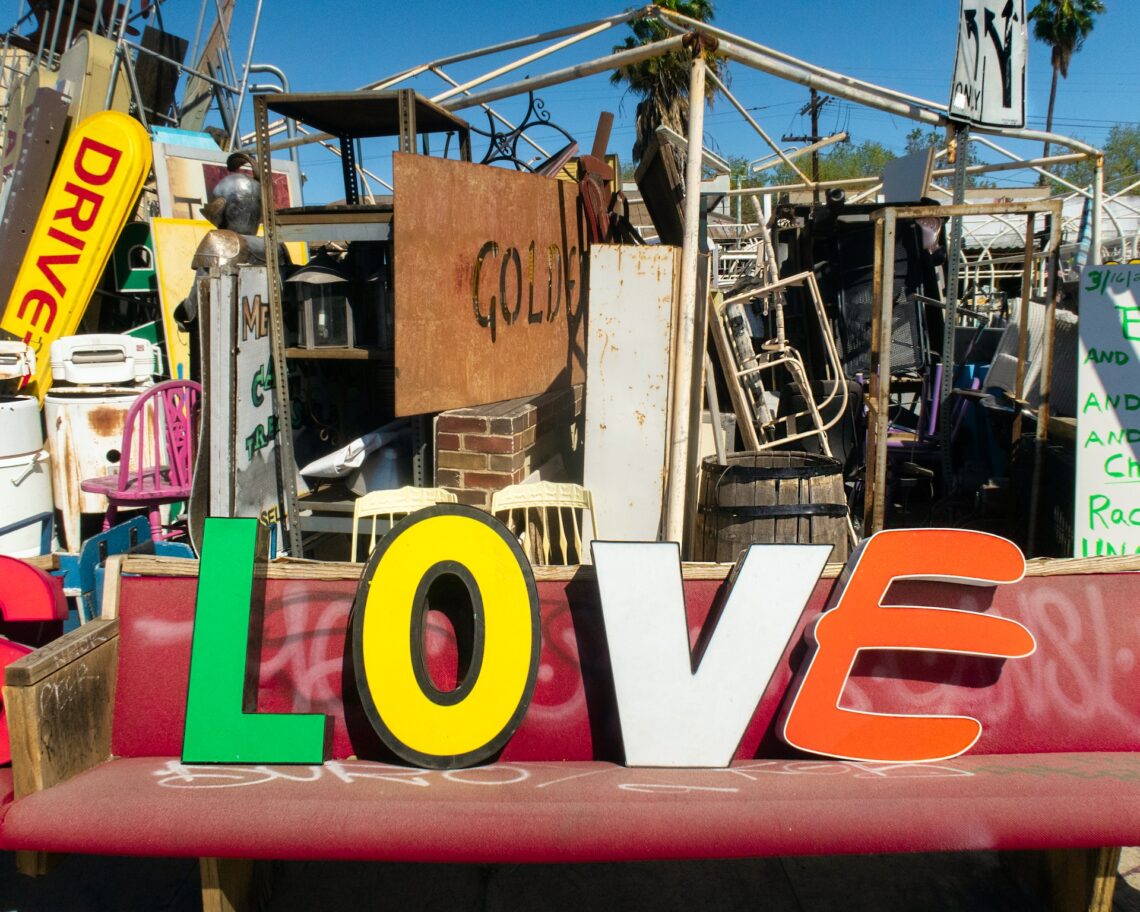
Consumption
photo by Joshua Coleman on Unsplash
by Philip Anderson
1.
She was determined not to feel one way or another about Dan or his birthday, so Rebecca flirted with a gay guy at the international art book fair in Berlin. She was there as the representative of Moorland Books, a small press based out of Oakland that she and a friend had founded years earlier at San Francisco Art Institute.
“What did you do at SFAI?” he asked. “What’s your medium?” His name was Bunny. He was a photographer, had gone to RISD, and his photobooks were being sold by a German queer press, Janni’s Room. Janni’s Room and Moorland Books shared a table in the cavernous conventional hall, the Haus der Kulturen der Welt, a Brutalist building in the middle of Tiergarten park, presently filled with hundreds of well-coifed thirty-something artist types, many carrying plastic cups filled with Aperol spritzes, the only thing the bar served other than cheap wine. The hall echoed with good-natured conversation in many languages. Rebecca was surprised that she could recognize when people laughed with accents. She heard a woman laugh a few tables down and knew she was Spanish, somehow. Rebecca had come to Berlin alone, had barely spoken to anyone, so she was grateful that Bunny, heavily bearded but American, had volunteered to man the Janni’s Room booth for an hour while Mischa, the stern editor with the Prince Valliant bowl cut, went to lunch.
“Sculpture was my thing,” Rebecca said. Moorland Books published mostly collections of pen-and-ink drawings—comics, really—and poetry, or a combination of the two. Every year they held the Stevie Smith Chapbook Competition.
“What does sculpture have to do with drawings and poetry?”
“A book is a three dimensional object, is it not?” In truth she was only now associated with Moorland by an editor-at-large title. Rebecca lived in Brooklyn and designed beach towels and bikinis for a swimwear company. Her undergrad sculptural work had involved textiles and hand-dyed yarn, but she hated the term fiber artist. It made her think of Metamucil. “We started out making limited edition, handmade chapbooks with structured fabric covers.” Rebecca’s college friend still ran the press, still lived in the Bay Area, and was supposed to have come, too, but she was offered a job teaching a summer print-making course in New Mexico. “Sad my friend isn’t here, but glad to get away from New York.”
Rebecca looked through Bunny’s book, Doppel Bängers. Black-and-white photographs of semi-clothed and naked, bearded men who all kinda looked like the photographer. The men were paired or grouped—those who bared the closest resemblances placed together. Two bald men with beards, each in leather vests and chewing cigars. Three guys with cherubic cheeks like lawn gnomes. Photos of unrelated twins and triplets and quadruplets. She thought she recognized one of the models—a former coworker of Dan’s—though she couldn’t be sure; after a while all the subjects looked the same.
“I took these photographs in New York, Chicago, San Francisco, and LA, mostly. It was meant to be a document of masculine homogeny, of a community within the queer community, who all value in their sexual partners the same masculine traits they like to exhibit.” Bunny was spieling his book. “Homosexuality is already steeped in the stigma of narcissism, and I wanted to play with that.”
“Doppel Bängers? Did you sleep with all these men?”
Bunny smiled. “My attractions are much more varied, but all art requires a bit of narcissism, right?” He added that he has since been pigeonholed as a bear photographer. This series got him his first solo show in New York, and then Mischa (he pointed at the table) contacted the gallery about bringing the show to Berlin, turning it into a book. It was now one of Janni’s Room’s best sellers. He told Rebecca he had other projects, other books, all dealing with sexuality and masculinity. But none as explicit. “My latest work is still lifes in the manner of seventeenth-century Flemish paintings. Those things are full of symbolism and metaphor—strawberries are heavenly, oysters are erotic, cats are illicit lovers, and of course skulls are the ever-present reminder of our fleeting mortality.” Their conversation stopped because a group of hirsute men came to the table to buy his book. He sold three copies, and the men invited him to a jockstrap party later that night at a club in the basement of a gay sauna. Bunny said he’d try to make it, but after they left, he told Rebecca there’s no way in hell he’d go to that. “I’m trying to lower my profile in that community. I’m not even a bear, or whatever. I don’t even consider myself gay, but more like umbrella queer. I’ve had boyfriends, I’ve had girlfriends.”
The book fair went from Friday to Sunday. Bunny came to the closing party, and he bought Rebecca several Aperol spritzes. Afterward, they walked along the Spree to his Airbnb where they had average, conventional sex. Rebecca had hoped that Bunny’s sexuality would make him a more empathetic and giving lover, or at least would offer her a glimpse into the exciting sex life she would have when she left Dan. Instead, his foreplay had consisted of nibbling on her neck which she had never liked (she was ticklish at the clavicle) and squeezing two surprisingly small fingers into her. His penis was smaller than she was used to. It didn’t make her miss Dan but an autumn she had spent in Húsavík, Iceland at an artist residency where a French poetess named Berle fisted her in a hot spring underneath the northern lights.
She spent the night with Bunny regardless. They stayed up in the living room drinking wine and smoking Turkish hash. He asked a lot of questions and let her talk, and she told him she had a partner of five years named Dan, and that she had just broken up with him, which was half-true. She told him that Dan was a good man but not good for her. She told herself it was good of her to break the seal of her monogamy tonight, that she had made the right decision. He listened intently, and she realized it was Bunny’s openness that was his draw; this was how he convinced a slew of men to sit naked with each other in hot lights to be exposed as replaceable.
At dawn she walked back to her hotel where her phone connected to Wi-Fi for the first time since she had left the morning before. She had urgent texts, emails, and voicemails from Dan’s coworkers, from his friends, from her landlord.
“Dan didn’t show up for work and he’s not answering our calls. We’re worried about Dan.” “Do you know where Dan is?” “Have you talked to Dan?”
The last message was from Gabe, Dan’s best friend. “Your landlord let me in,” Gabe said before breaking into a sob. “Dan is dead.”
2.
“He choked on his own vomit.”
Rebecca sat on an Ikea ottoman in Gabe’s Greenpoint apartment, and she opened the cat carrier, releasing Heathcliff into his new home.
“If anyone should have died of shit like that it should’ve been me,” Gabe said.
The studio apartment was a large open space with ten-foot ceilings and two tall south-facing windows that had dark curtains covering them, blocking the summer sun. An air conditioner hummed and rattled from the window in the kitchenette. Rebecca eyed the cat as he sniffed a pile of soiled laundry beside Gabe’s bed. The bed was covered in dirty clothes as well, and a bookcase next to the bathroom door had several dead plants—an aloe, an ivy, some rotting cacti—and one thriving pothos. Gabe paced the apartment like a cell, walking to the kitchenette and back, into the bathroom and out, brushing the long tendril of leaves from the pothos each time he passed. Pothoses can live through everything.
Rebecca’s Berlin trip had coincided with Dan’s birthday. It was no coincidence she chose to ditch out on New York when he would be at his partiest. She had called him on Saturday after leaving Tiergarten, and, already drunk in celebration of his thirty-fourth year, he told her, “When you get back, I’m going to propose. For real this time.” Dan managed a brasserie—steak frites, chicken paillard salad, raw bar—and spent his late hours drinking with other industry people. They lived together, with his cat. Dan would come home at dawn and the cat would curl up next to his head as soon as he got into bed, tangling Rebecca’s hair and waking her in his process. Shortly before Dan met Rebecca, he had found the kitten mewing from a gutter under the BQE, and he named him Heathcliff. She assumed it was for the cartoon tabby and not Wuthering Heights, despite the circumstance of discovery—an orphan on a dirty city street. She told him this while the three cuddled on the couch, and Dan said, “No, it is for the Wuthering Heights character, but only because I love the Kate Bush song.” He sang then in a comically high-pitched voice (let me in through your windo-o-o-ow!) causing the cat to run under the couch. She told him she named her press Moorland Books after the moors where the Brontë sisters lived, but because she loved Anne Carson’s “The Glass Essay.”
“We knew he was dead from the smell when we opened the door. Your landlord went in and told me to call 9-1-1.” Gabe continued moving back and forth across the space, his hands pulling at his oily black hair or rubbing his neck. “I wanted to rush in, but something told me to stop, just stop. I paced outside, you know, and I called you and I called the restaurant and I called my mom because I didn’t know what else to do. An ambulance came and wheeled him out and his face was covered, you know, like a sheet over him like a fucking TV show? Like I walked through the filming of a Law and Order episode again.”
Heathcliff padded his way to Gabe and rubbed his head against the hairy ankle of his new caretaker. Rebecca couldn’t keep the cat. Nor did she want her apartment anymore. She packed a suitcase and moved into a hotel.
“I was there, you know, when you called. I told him not to tell you that he was going to propose. I said, don’t tell her, you idiot, proposals are supposed to be a surprise. You know I was going to be best man, and I was already thinking I have to give Dan the best best man speech that has ever been given.” He stopped, walked over to the bed and lied face down on the pile of clothes. “I loved him so damn much. I loved him more than I loved anyone because he was the responsible one, he was the one who took care of me, you know. Why did he have to go and do that French fucking exit?”
You know? Yes, Rebecca knew. She knew the landlord had gone in at the request of Gabe. She knew Gabe hadn’t seen that Dan had been dead since the early hours of Sunday morning. She knew the body smelled because he hadn’t turned the AC unit on in the hot apartment before passing out. She knew Dan and Gabe had been drinking on his birthday because of course he would, and because the medical examination showed traces of cocaine in his system.
“I know that you two were in a rough spot. He told me he was afraid you were going to leave him,” Gabe said. “But I know that he really, really loved you. He worshipped the ground you walked on. I know that, and I was going to say that in my best man speech.” He sat up. “I guess now I just have to give the best eulogy instead of the best best man speech. He’s being buried in Chicago, next to his mom, you know.”
Rebecca nodded because she knew more than Gabe, but why bother telling him.
“You’ll need to get a litter box,” she said instead.
3.
The funeral mass was held in the same Chicago church where Dan was baptized and confirmed, and where his parents got married and his mother’s funeral had been. Rebecca sat between Dan’s father and sister in the first pew. Dan’s niece and nephew fidgeted a few seats over. Rebecca’s mind slipped away from the somber rituals, and was startled when everyone stood from their kneeling position. The priest had called the congregants to receive the Eucharist. Rebecca, a nonbeliever, sat in the pew with Dan’s niece who had not yet had her first communion. She held the little girl’s hand as the rest of the room lined up. She could hear the priest repeat “Body of Christ” to each person, and she watched as the anointed stuck out their tongues or held out their hands to receive the host.
Eulogies were saved for the burial. Dan’s sister spoke of his propensity for list making, how even as a child he would have lists of chores, homework, and even social engagements. She had found a list he had made at age six, of people he should be nice to even though he didn’t like them. “My name was at the top of the list, and crossed out,” she said. “I asked if he thought he didn’t have to be nice to me, and he said, ‘No, I crossed you out because I decided I like you.’”
Rebecca spoke of a weekend trip the two had taken to San Francisco, a few months into their relationship. She showed him her college campus: the Diego Rivera mural, and the views of Coit Tower and the Bay from the courtyard. They drove through Pacific Heights and she pointed out Danielle Steele’s massive mansion. They drove through the Presidio, and Dan pointed every time the Golden Gate Bridge came into view.
She took him to her favorite bookstore, and to a Burmese restaurant, where they ate tea leaf salad. They went to the Cliff House, a restaurant that looks out over the Pacific, and there they drank champagne and ate oysters—creamy Pacific oysters from Tomales Bay and Hog Island—and watched the sun set over the water. It was a picturesque moment, she said, one that will live in her memory as vividly as if it happened moments ago. “When I think of Dan,” she said, “I will always see him as he was that day.”
Dan’s blue eyes glow across the table from her, lit by the deep oranges and pinks and yellows of the sunset. He smiles at her, revealing his dimples and his snaggled canine, and he says to her for the first time, “I love you so damn much right now.”
Gabe rambled. He bounced between a story Rebecca had heard many times before, about Dan protecting Gabe, the new kid in their sixth grade class, from bullies, and making fun of Dan’s fear of going bald. He cried after he said Dan thought his thinning hair made his skull shape more visible.
Rebecca looked at Dan’s casket and imagined him disappearing from the bar, heading home, and passing out on his back, choking, dying. She thought of the hours in which his soulless body began its decay in their humid apartment, his mortal absence from the world unnoticed by everyone except a street cat named Heathcliff. “Proposals like this are just a Hail Mary,” she had said the last time they spoke. “We’ll have a serious talk when I get back.” When Dan said I love you that time, she said only, “Enjoy your birthday.”
Her memory skipped to Bunny in Kruezberg. The photographer had told Rebecca that he and his partner had recently split. “Grow together or grow apart,” he said. “And we grew apart, at least sexually.” Bunny found out his partner had started going to sex clubs, signed up for BDSM dating websites. “I found a video on his phone of him in a motel bathroom drinking piss from a wine glass. Worst part was—the guy who pissed in the wine glass for him? I’d photographed him.” She had laughed, apologized, and said she understood, in abstract. The idea of “grow together or grow apart.”
At Dan’s family home, Rebecca leaned against a wall by a table strewn with casseroles and nodded at the whispered condolences of Dan’s friends and neighbors. She stared at the brown and red oriental rugs that covered dark hardwood floors. She had admired this craftsman house every time she visited previously, but today it felt stuffy and dated. The rugs needed to be vacuumed, and the house smelt of stale cigarette smoke. Dan’s dad had started smoking inside after the mother died. She wanted to point this out to someone, to complain, but despite being the woman the recently deceased wanted to marry, she barely knew anyone here. She barely knew anyone anymore, she realized. She had spent the past five years invested in Dan and their relationship, and her friendships had fallen away. Her friends used to joke with her about this: Rebecca moved to Boyfriend Island and can’t be reached. Then even the jokes stopped.
She listened to the automatic thank-yous of Dan’s father and sister and brother-in-law, and she heard Gabe sobbing in the half-bath by the stairs. She drank wine that tasted like the ferric flavor of blood. She closed her eyes and saw fuzzy yellows, soft greens, angry reds. The colors mixed together and moved, like a hurricane forecast, and then came the calm sea, Dan’s dimples, the pink sky reflected in his eyes, and the taste of blood became the taste of oysters.
4.
Rebecca saw Dan’s former coworker at a Wicker Park coffee shop several days after the funeral. She stayed in Chicago to sort out Dan’s will—he had made one after his mother died. His mother had been a big woman and died of a heart attack a year earlier. Rebecca had been surprised when she first met Dan’s obese mother, considering his svelte and muscled body. But the gym was part of Dan’s regimented, organized life, a conscious reaction to his mother’s size. He was responsible, as Gabe had said. Besides his physical health, he had an I.R.A., minimal financial investments, and he had started a trust with a few thousand dollars for his niece and nephew’s educations. After his mother died, he got life insurance; Rebecca was the beneficiary.
She remembered Dan’s coworker, Wyatt, had left New York for grad school, possibly here in Chicago, but she didn’t know for what. She knew she didn’t have to feign any interest in his life because when he saw her, he made the face she had grown accustomed to seeing since Dan’s death—hangdog, sympathetic, and culpable.
She drank her green tea and invited him to sit down.
Wyatt immediately apologized. He hadn’t gone to the funeral because he was visiting family in California last week. He found this meeting “fortuitous,” he said, despite a lisp, because he really did love Dan and was wondering how she was dealing with it. “I’m sorry, that’s not right thing to say,” he said. “I’m just glad I get to see you in person and give my condolences, even if you and I were never really close.”
“Dan always liked you,” Rebecca said. She told Wyatt Dan was proud of him for leaving the restaurant, going to grad school.
“I haven’t been able to stop thinking about him since Gabe called me. I am, of course, shocked that he is dead.” He studied her face for a moment, as if he were searching for an authentic grief. He scrunched his nose, likely disappointed he couldn’t find it. “But I hate to admit that I am not totally shocked.”
“I’m sorry?” She was surprised by his frankness.
“He was proud of me for leaving the restaurant because he knew what it does to a person,” he said. “The hours are terrible, the customers are worse. You’re constantly trying to make everyone feel so loved, so welcomed, so special. You end up drinking—and alcohol is always available—to lubricate yourself for the endless social interactions. But honestly it’s why Dan was good at it, wasn’t he?” He lowered his voice to a conspiratorial whisper. “He showed everyone just enough attention to get them to fall in love with him a little bit. The customers loved him, his coworkers loved him. I loved him. I was, am still, a little bit in love with Dan.”
Rebecca remembered Bunny’s book in that moment, the feeling she had of recognizing one of the models, and was sure now she had seen in that series of naked doppelgängers this young man sitting across from her. Had she really seen Wyatt’s naked body? If he had been one of Bunny’s subjects, he might’ve had sex with him, too. What would Dan think of that? She had slept with a man who had slept with Wyatt. Dan, who had once told her, “I’d like him more if he wasn’t so gay about it.” She had given him side eye, and Dan said, “It’s the lisp.”
“You were in love with Dan?” She smiled. She wondered briefly if she could give Dan’s life insurance money to Wyatt, if he would take it. She wanted it as little as she wanted the cat.
“A little bit.” He continued, “Everyone was. Look at Gabe. He’s been deeply and tragically in love with Dan since Dan told some bullies to stop shoving snow in Gabe’s jacket, or whatever. Gabe goes beyond the ‘little bit’ though. It’s a dramatic obsession. But I think Dan put up with Gabe because Dan needed to be loved, to be admired. That’s why you scared him. He was always afraid you’d stop loving him.”
“If he wanted unconditional love he should have gotten a dog,” Rebecca said, and she thought then of Heathcliff.
Wyatt frowned.
“I scared Dan because he thought of love as quantifiable, measured in weight on a scale, that the scale could be tipped out of balance, and that he would end up loving me more than I loved him.” She added, “It was a problem.”
“I’m sorry,” he said. He started to stand. “I didn’t mean to—”
She waved him back to his chair.
“Please sit. For days people have come up to me to tell me how smart, how charming, how wonderful a man Dan was,” she said. “I have been inundated with condolences, and had stories repeated of his chivalry, of his responsibility, of his competency. But how responsible and competent can he be if he got so drunk it killed him? You say you weren’t completely shocked he died the way he did? Me either. You are the first person to have spoken a reasonable and logical word to me since, well.”
She thought of Berlin, of Bunny, of the terrible timing of infidelity. She looked up at Wyatt and saw he she had caught him. He was frozen in his chair with gritted teeth and desperate eyes. She thought of telling him about Bunny. As some sort of penance. He would understand. He probably slept with him too. But she decided, then, to shift the weight on the scales, to sit high on the see-saw. “Do me a favor,” she said. “I need to hear something objectively terrible, even if to ease my guilt. Please,” her eyes bulged, “tell me something wretched about Dan.”
He bit a fleck of dry skin from his lip and wiped his palms on his shorts.
“Ok,” he said. An el train passed outside, rumbling the little coffee shop. Rebecca’s cold tea spilled into the saucer.
“Dan was obsessed with women who ate oysters,” he said after the train passed. “He had a weird fetish, or a disgust, really, with watching women eat oysters. ‘They’re so slimy, so mucus-y,’ he would whisper into my ear. We would stand at the server station, and he would say: ‘Just look at them. Look at that bachelorette party eating these things. They ordered three dozen. Do you think they enjoy eating oysters? Do they like the salty taste? I have a salty taste for them, if they want.’ It was the only time I’d hear him get sexual about people in the restaurant.”
She thought of Dan’s blue eyes across the table from her. His smile as she brings the scalloped shell to her lips. She tips back and swallows. “I love you so damn much right now.”
Rebecca covered to her mouth.
“But it was also something else, something grotesque,” he continued. “He’d say: ‘What’s it like going through them? They eat them and they just slide down their throat and into their stomach. I can’t stand it. Every time I see these groups of women gathering together ordering dozens and dozens of oysters, drinking champagne, thinking they’re living the best damn life, I think about how later they’re going to poop out all these little oyster-sized turds, little squirts of digested bivalves.’ It possessed him to the point that I had to steer him away from tables when I feared he’d be caught staring.”
She thought of Dan’s smile and his deep dimples, and of the litter box in the bathroom of the apartment she had abandoned. Her landlord had told her it had only taken a few hours for Heathcliff, hungry, to start nibbling. There was dry cat shit still in the litter box—Dan, digested and excreted. The mortician had rebuilt the few chunks Heathcliff had taken out of his cheek, just at the dimples, which were absent from his calm, embalmed face.
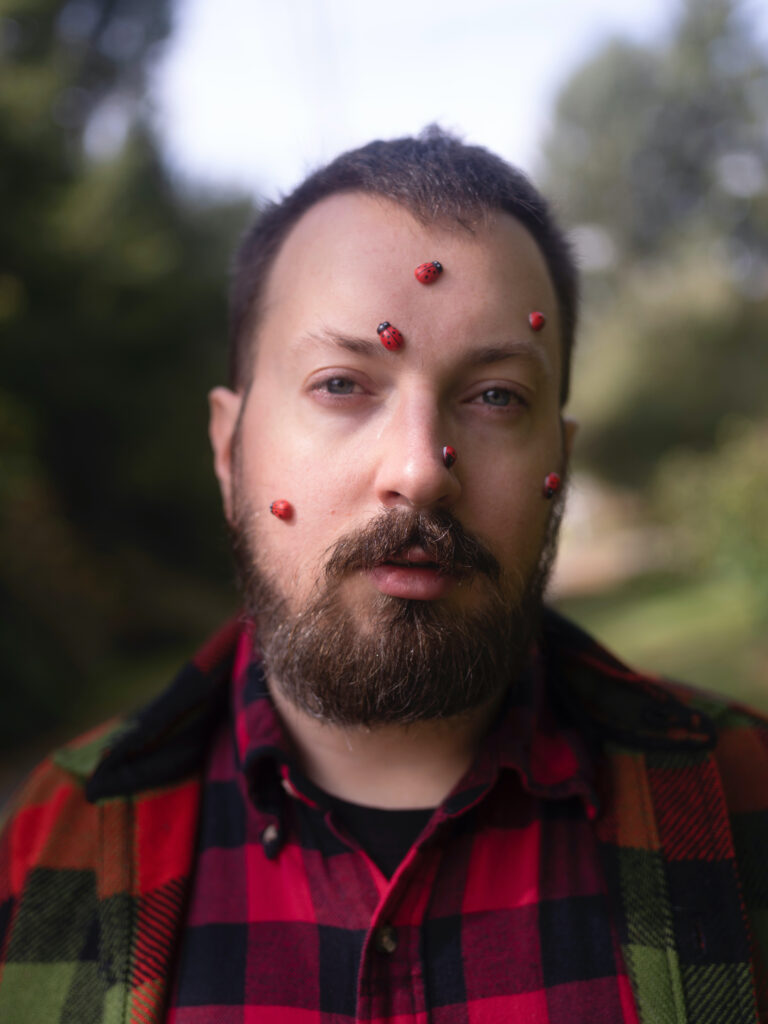
Philip Anderson is a writer based in Los Angeles. He has an MFA from Columbia University, and his fiction has been published in Martha's Quarterly, Bull, Archways, and Story Magazine. He was the Emerging Fiction Fellow of Lighthouse Writers Workshop's Lit Fest in 2020, and has been awarded fellowships and support from Catwalk Residency, Lighthouse Works, and Millay Arts. He is currently working on a collection of short stories and a novel.
